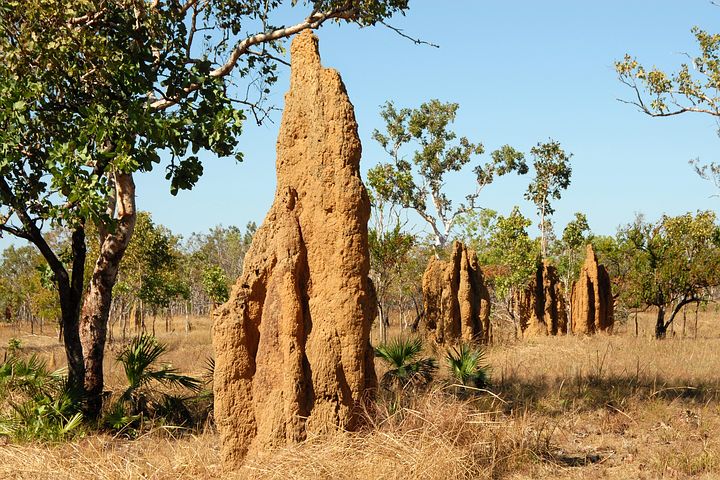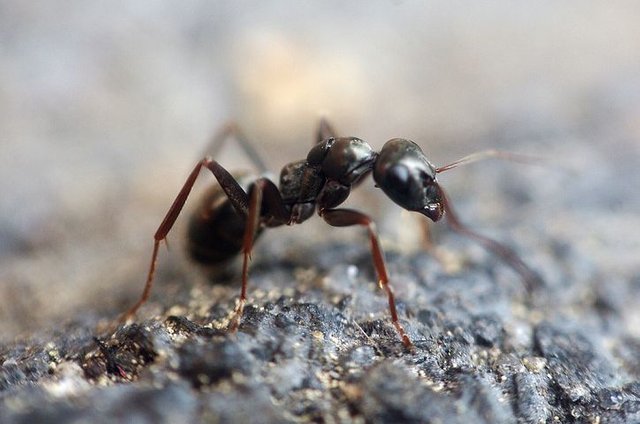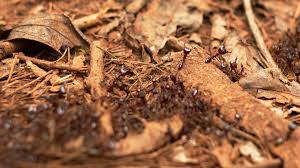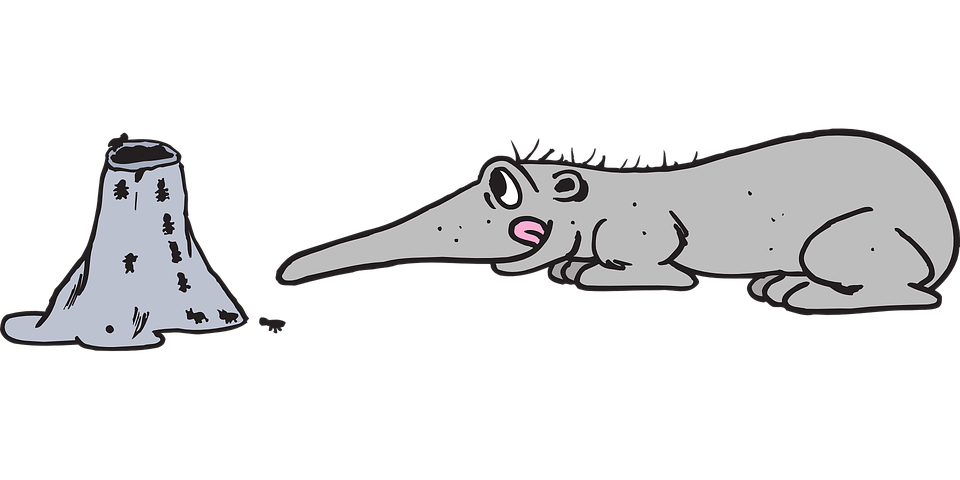THE ANT AND THE ECOSYSTEM
Relaxing under a tree on the open lawn of my university, I sighted an ant nest not too far from me. I was carried away by the beauty of the castle those little creatures built and the uniqueness in their organization. I was simply amazed.
After a while of being awestruck, the question struck me! How important are these tiny creatures to our world? A lot of good things have been said about them but I was still curious about what they really offer to nature.
I decided to do a little research and here is what I found.
THE ANTS
It wouldn’t be nice if I fail to introduce these creatures accordingly. We all know what an ant is if we see one but I can still remember my first grade biology and I agree that it is important to state the classification an animal falls into.
Therefore, according to biology,
Those little creatures are classified in the phylum Arthropoda. This is because they have an exoskeleton (an exterior protective or supporting structure or shell including bony or horny parts such as nails or scales or hoofs). They are also in the class Insecta (of course it sounds and looks the same as insects!) for their six legs. As for their order, they fall into the order Hymenoptera (trust me, it was easier for me to spell the word than pronounce it). And the family Formicidae. Depending on the type of ant, there are subfamilies namely; Ponerinae, Dolichoderinae, Myrmicinae and Formicinae.
Awesome as they are, there are at least 12,000 identified species in the world (by “identified” it means there are still many more undiscovered species of these cute little beauties). This is enough to conclude that the ants are among the most abundant creatures on earth as the total ant population is estimated as one quadrillion (that’s a lot of zeros) which brings us to say that;
One insect out of a thousand is an ant!
Enough of the biology, let’s talk about what these great creatures have to offer mother earth.
THE ECOSYSTEM
Before proceeding to the ant colony, I would also like to break some ambiguity or simply define my terms for better understanding.
Oxford dictionaries defines the word “ecosystem” as
A biological community of interacting organisms and their physical environment.
Usually the “community” comprises of both living and non-living organisms of the environment relating with one another. An ecosystem forms the basis for nutrient cycles and energy flows. The primary energy source for any ecosystem is sunlight.
An ecosystem is not usually determined by size but instead the occupants. Therefore, one can conclude that an ecosystem can range from a small pool of water to the whole earth. And of course it is a valid statement that the earth is an ecosystem!
Discussing the ecosystem would involve topics such as biodiversity, the food chain, energy or food cycles, adaptation of species and a host of others. Further reading on the ecosystem can be found here or here
ECOSYSTEM simply means ‘ecological systems’ and ECOLOGY is the study of ecosystems
ECOLOGICAL IMPORTANCE OF ANTS
As stated earlier, ants play a very big role in the ecosystem and this cannot be ignored. As a result of this, they are given the name;
ECOLOGICAL ENGINEERS (it’s a pity that they do not put their helmet on for safety but we’ll let that pass!).
An ecological engineer is any organism that structures or redefines the environment to fit its requirements which in return has fundamental and profound effects on the abundance, occurrence and special pattern of other species in the ecosystem.
Below are a few roles of the ants that I find fascinating;
SOIL ENGINEERS THEY ARE!
By building their colonies in the soil, ants play a vital role in aerating the soil. They turn the soil thereby creating space for water and oxygen to reach the roots of plants. Aerating the soil also is a result of them bringing pebbles and soil particles to the top. This activity of the ants is referred to as bioturbation which means retreading the soil and sediments which allow for water and gas exchange through thee tunnels in their nest.
When these ants move about in the soil, they also aid the concentration and cycling of nutrients in the soil, prevent plant colonization and also alter the temperature and moisture profiles of the soil. No wonder plants always do not mind having the ants around and of course ants are not considered as pests.
THEY ARE CLEANERS!
Ants feed on organic waste, insect and other dead animals. As a result of this action, they help “clean” the ecosystem by getting rid of these things that would otherwise be a nuisance to the environment.
In other words, ants act as decomposers. An example of the “cleaning” ability of ants is the carpenter ants which usually have their nests in dead or diseased wood and speed up the decomposition rate of the timber. Even after the ants take their leave, fungi and bacteria come around to finish up.
THEY ARE TRANSPORTERS
Ants sometimes fed on plant seeds and after they are done eating the part of the seed that they want the seed is unintentionally planted in the soil and out comes another tree.
ants are seed dispersers
As a result of this activity, the ants help to maintain balance in the ecosystem. Remember to plant a tree today!
THEY ARE FOOD.
In a bid to maintain the balance in the ecosystem (food chain to be precise), ants serve as food for other organisms and animals. The spider, frog, ant eater, the wood peckers and even the bear feed on ants and their larvae. Worthy of mention is the carnivorous plant known as the pitcher plant (yes! A plant that eats ants).
CONCLUSION
It is not an invalid statement to state that ants are very important parts of any ecosystem and the earth in general. Next time you see an ant nest or colony, take your time to say hello and admire the beautiful works these awesome creatures do.
REFERENCES
ecological importance of ants | ants and ecology | ecosystem engineers | ant ecology and other adventures | bioturbation | food web | about ants


.jpg)

Hello @pweetify
OK, I guess it's safe to say I give up right now on these ants. That's a whole lot of species there. I was just trying to figure out how much that is.
Well, thank you for educating me on this, I'll be sure to take a look at this wonderful creature some other time, but they exist a specie I'll never hesitate to kill, for all your admonition.
Keep being amazing and cheers.
Thanks @nexrules for reading through.
Sometimes it comes as reflex to just kill them but i have learnt to let them be.
Ants are sincerely awesome and hardworking creatures and deserve to live!
They also do the earth a lot of good.
From what I read here ants aren't bad after all. They are engineers, transporters and plays a vital role in the foodchain. I never knew that.
I learned a lot from this post. Thanks for sharing!
Ofcourse they do all that!
Thanks for visiting my blog
Congratulations @pweetyify! You have completed some achievement on Steemit and have been rewarded with new badge(s) :
Click on any badge to view your own Board of Honor on SteemitBoard.
For more information about SteemitBoard, click here
If you no longer want to receive notifications, reply to this comment with the word
STOPDo not miss the last announcement from @steemitboard!